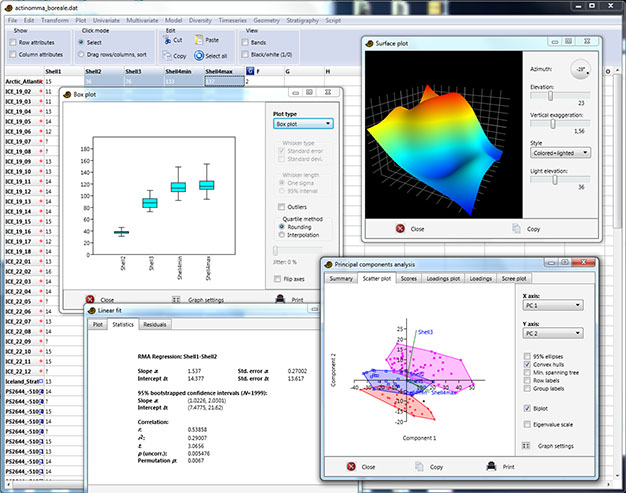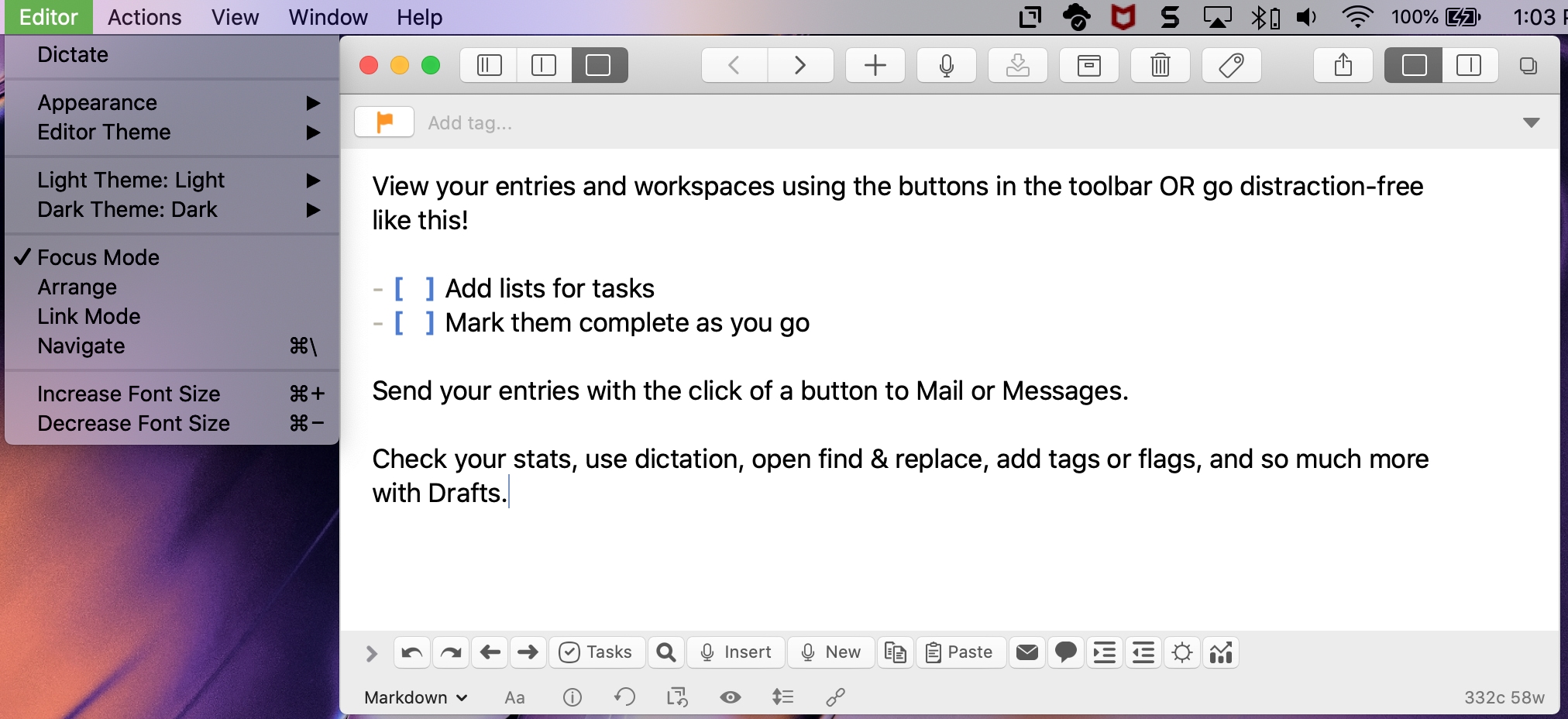- Free Statistical Analysis Software For Mac Download
- Free Statistical Software
- Free Statistical Analysis Software For Mac Computer
- Free Statistical Analysis Software For Mac Computers
Updated 9/7/2021
What about cryptographic signing and error messages when you try to install free statistical software for Macs? See our “signing page.” ... and does this work on Mojave? Is it signed and 64-bit?
- This easy to learn and simple to use software saves you valuable time and money. Statistix combines all the basic and advanced statistics and powerful data manipulation tools you need in a single, inexpensive package. Free technical support! Join the thousands of users who have been analyzing data with Statistix since 1985.
- Graph is for those who need an open-source and free download graphing software for Windows or Mac. It is one of the most popular freeware programs to draw mathematical and statistical graphs. It is one of the most popular freeware programs to draw mathematical and statistical graphs.

Free Statistical Analysis Software For Mac Download
Meet the free SPSS clones
Option 1: Download the XLSTAT add-on statistical software for Mac and use it in Excel 2011. XLSTAT contains more than 200 basic and advanced statistical tools that include all of the Analysis ToolPak features. Go to the XLSTAT download page. Select the XLSTAT version that matches your Mac OS and download it. A free statistics software would be of great help to carry out the statistical analysis of the huge data. Students who are doing research or about to begin their research work or survey might find this blog interesting. I have listed down the top 8 free statistics software of 2020 that can be used in academics as well as for the industrial purpose. Open-Source Free Statistical Software for Data Analysis– No. Free Version of The Statistical Lab Best Statistical Software– Yes. Premium Pricing: It’s a free statistical analysis software. Best Features of The Statistical Software Free Statistical Analysis Software for Mac– You can run multiple simulations and calculations at the same time.
I have taught statistics using JASP, Jamovi, and PSPP. Each has advantages and disadvantages, and there is nothing stopping you from using all three depending on what you are trying to do. Ironically, each one has a much faster user interface than SPSS—and all import and export SPSS .sav and syntax files.

JASP is a fork of (it was originally based on) Jamovi; both are still under active development, which have fairly similar user interfaces, and both saved a good deal of time and trouble by not reinventing the wheel—they are essentially user interfaces for another statistics program, the hard-to-learn-and-use R.
| JASP | Jamovi | PSPP | |
| Regression | Stepwise, forward, backward | Enter (supports multi-step) | Enter (one step) |
| Missing values | Program-wide only | By variable | By variable |
| Statistics engine | R | R | PSPP |
| Signed | Yes | Yes! | No |
| M1 native | Source, not binary | Source, not binary | Source, not binary |
The programs have spreadsheet-like data editors, but it's best to prepare information for them somewhere else; they let you computer variables, but in a clunky and hard to use way. Importing variable labels and missing values from SPSS files sometimes fails (I've only seen the missing values problem on Windows), a major drawback to programs that will read SPSS files otherwise.
| JASP and Jamovi | PSPP | |
|---|---|---|
| t-tests | Shared variance only | Shared and unique variance |
| Cost | Free | Free |
| Output | Copies as tables | Copies as plain text |
| More modules? | Yes | No |
| Windows | One triple-pane window | Three windows |
| Syntax | No | Yes, SPSS |
| Contextual help | Yes, nicely integrated | No |
| Can log commands to a file | Yes (can’t easily replay) | In theory/not working |
| Mac open/save/print boxes | No | No |
| Can use as SPV file viewer | Yes |
JASP and Jamovi share lightning-fast speed; a wide range of statistics, with extra plugins on Jamovi; and easy installation on Macs, Windows, and Linux. Their basic interface has an Office 365-style open/save/print/export tab; options on the left, output on the right layout; instant changes to the output if you change the input; and export of both data and output, as desired.
There’s a third SPSS clone, one which keeps most of the user interface from a relatively ancient version of SPSS: PSPP. At the moment there are some nasty bugs, but overall it might be easier for many people to use than JASP and Jamovi. It's easier to master if you're used to SPSS, but development has been very slow and JASP and Jamovi may be better options for that reason—unless you do a lot of computes and recodes and other data manipulation, or do a lot of t-tests. Then PSPP is the best choice.
This directory contains binaries for a base distribution and packages to run on macOS. Releases for old Mac OS X systems (through Mac OS X 10.5) and PowerPC Macs can be found in the old directory.
Note: Although we take precautions when assembling binaries, please use the normal precautions with downloaded executables.
Free Statistical Software
Package binaries for R versions older than 3.2.0 are only available from the CRAN archive so users of such versions should adjust the CRAN mirror setting (https://cran-archive.r-project.org) accordingly.
R 4.1.1 'Kick Things' released on 2021/08/10
Please check the SHA1 checksum of the downloaded image to ensure that it has not been tampered with or corrupted during the mirroring process. For example type
openssl sha1 R-4.1.1.pkg
in the Terminal application to print the SHA1 checksum for the R-4.1.1.pkg image. On Mac OS X 10.7 and later you can also validate the signature using
pkgutil --check-signature R-4.1.1.pkg
Latest release:

| R-4.1.1.pkg (notarized and signed) SHA1-hash: d0eed7d0755bc80911acb616508d41e1396f810e (ca. 86MB) | R 4.1.1 binary for macOS 10.13 (High Sierra) and higher, Intel 64-bit build, signed and notarized package. Contains R 4.1.1 framework, R.app GUI 1.77 in 64-bit for Intel Macs, Tcl/Tk 8.6.6 X11 libraries and Texinfo 6.7. The latter two components are optional and can be ommitted when choosing 'custom install', they are only needed if you want to use the tcltk R package or build package documentation from sources. Note: the use of X11 (including tcltk) requires XQuartz to be installed since it is no longer part of OS X. Always re-install XQuartz when upgrading your macOS to a new major version. This release supports Intel Macs, but it is also known to work using Rosetta2 on M1-based Macs. For native Apple silicon arm64 binary see below. Important: this release uses Xcode 12.4 and GNU Fortran 8.2. If you wish to compile R packages from sources, you may need to download GNU Fortran 8.2 - see the tools directory. |
| R-4.1.1-arm64.pkg (notarized and signed) SHA1-hash: e58f4b78f9e4d347a12cc9160ee69d3d23e69f3b (ca. 87MB) | R 4.1.1 binary for macOS 11 (Big Sur) and higher, Apple silicon arm64 build, signed and notarized package. Contains R 4.1.1 framework, R.app GUI 1.77 for Apple silicon Macs (M1 and higher), Tcl/Tk 8.6.11 X11 libraries and Texinfo 6.7. Important: this version does NOT work on older Intel-based Macs. Note: the use of X11 (including tcltk) requires XQuartz. Always re-install XQuartz when upgrading your macOS to a new major version. This release uses Xcode 12.4 and experimental GNU Fortran 11 arm64 fork. If you wish to compile R packages from sources, you may need to download GNU Fortran for arm64 from https://mac.R-project.org/libs-arm64. Any external libraries and tools are expected to live in /opt/R/arm64 to not conflict with Intel-based software and this build will not use /usr/local to avoid such conflicts. |
| NEWS (for Mac GUI) | News features and changes in the R.app Mac GUI |
| Mac-GUI-1.76.tar.gz SHA1-hash: 304980f3dab7a111534daead997b8df594c60131 | Sources for the R.app GUI 1.76 for macOS. This file is only needed if you want to join the development of the GUI (see also Mac-GUI repository), it is not intended for regular users. Read the INSTALL file for further instructions. |
Note: Previous R versions for El Capitan can be found in the el-capitan/base directory.Binaries for legacy OS X systems: | |
| R-3.6.3.nn.pkg (signed) SHA1-hash: c462c9b1f9b45d778f05b8d9aa25a9123b3557c4 (ca. 77MB) | R 3.6.3 binary for OS X 10.11 (El Capitan) and higher, signed package. Contains R 3.6.3 framework, R.app GUI 1.70 in 64-bit for Intel Macs, Tcl/Tk 8.6.6 X11 libraries and Texinfo 5.2. The latter two components are optional and can be ommitted when choosing 'custom install', they are only needed if you want to use the tcltk R package or build package documentation from sources. |
| R-3.3.3.pkg MD5-hash: 893ba010f303e666e19f86e4800f1fbf SHA1-hash: 5ae71b000b15805f95f38c08c45972d51ce3d027 (ca. 71MB) | R 3.3.3 binary for Mac OS X 10.9 (Mavericks) and higher, signed package. Contains R 3.3.3 framework, R.app GUI 1.69 in 64-bit for Intel Macs, Tcl/Tk 8.6.0 X11 libraries and Texinfo 5.2. The latter two components are optional and can be ommitted when choosing 'custom install', it is only needed if you want to use the tcltk R package or build package documentation from sources. Note: the use of X11 (including tcltk) requires XQuartz to be installed since it is no longer part of OS X. Always re-install XQuartz when upgrading your OS X to a new major version. |
| R-3.2.1-snowleopard.pkg MD5-hash: 58fe9d01314d9cb75ff80ccfb914fd65 SHA1-hash: be6e91db12bac22a324f0cb51c7efa9063ece0d0 (ca. 68MB) | R 3.2.1 legacy binary for Mac OS X 10.6 (Snow Leopard) - 10.8 (Mountain Lion), signed package. Contains R 3.2.1 framework, R.app GUI 1.66 in 64-bit for Intel Macs. This package contains the R framework, 64-bit GUI (R.app), Tcl/Tk 8.6.0 X11 libraries and Texinfop 5.2. GNU Fortran is NOT included (needed if you want to compile packages from sources that contain FORTRAN code) please see the tools directory. NOTE: the binary support for OS X before Mavericks is being phased out, we do not expect further releases! |
Subdirectories:
| tools | Additional tools necessary for building R for Mac OS X: Universal GNU Fortran compiler for Mac OS X (see R for Mac tools page for details). |
| base | Binaries of R builds for macOS 10.13 or higher (High Sierra), Intel build |
| contrib | Binaries of package builds for macOS 10.13 or higher (High Sierra), Intel build |
| big-sur-arm64 | Binaries for macOS 11 or higher (Big Sur) for arm64-based Macs (aka Apple silicon such as the M1 chip) |
| el-capitan | Binaries of package builds for OS X 10.11 or higher (El Capitan build) |
| mavericks | Binaries of package builds for Mac OS X 10.9 or higher (Mavericks build) |
| old | Previously released R versions for Mac OS X |
You may also want to read the R FAQ and R for Mac OS X FAQ. For discussion of Mac-related topics and reporting Mac-specific bugs, please use the R-SIG-Mac mailing list.
Information, tools and most recent daily builds of the R GUI, R-patched and R-devel can be found at http://mac.R-project.org/. Please visit that page especially during beta stages to help us test the macOS binaries before final release!
Package maintainers should visit CRAN check summary page to see whether their package is compatible with the current build of R for macOS.
Free Statistical Analysis Software For Mac Computer
Binary libraries for dependencies not present here are available from http://mac.R-project.org/libs and corresponding sources at http://mac.R-project.org/src.
Free Statistical Analysis Software For Mac Computers
Last modified: 2021/05/20, by Simon Urbanek